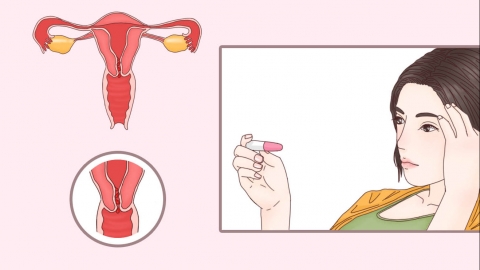Why Endocrine Imbalance Causes Infertility
Generally, the causes of infertility due to endocrine disorders include excessive stress, unbalanced diet, hyperprolactinemia, adrenal cortical hyperfunction, and polycystic ovary syndrome (PCOS). If discomfort occurs, timely medical consultation is recommended. Detailed analysis is as follows:

1. Excessive Stress
Long-term mental stress can lead to dysfunction of the hypothalamic-pituitary-ovarian axis, affecting the secretion of hypothalamic gonadotropin-releasing hormone (GnRH), thereby inhibiting gonadotropin secretion, causing ovarian ovulatory dysfunction, and resulting in infertility. Women are advised to maintain a positive and optimistic mindset, engage in appropriate psychological adjustment techniques such as meditation and yoga, and relieve stress.
2. Unbalanced Diet
Insufficient or excessive nutrient intake may affect the normal functioning of the endocrine system. For example, obesity can aggravate insulin resistance, influencing the normal synthesis and secretion of sex hormones, thereby causing the aforementioned conditions. A balanced diet should be maintained in daily life, ensuring sufficient intake of vitamins, minerals, and dietary fiber, while controlling weight to avoid obesity.
3. Hyperprolactinemia
Hyperprolactinemia is caused by pituitary prolactinoma or hypothalamic dysfunction, which may lead to abnormally elevated prolactin levels, inhibiting the secretion of hypothalamic GnRH and pituitary gonadotropins, affecting ovarian function, and resulting in infertility. Symptoms such as oligomenorrhea and galactorrhea may also occur. Treatment under a physician's guidance may include medications such as octreotide acetate injection, vitamin B6 tablets, and aripiprazole tablets.
4. Adrenal Cortical Hyperfunction
Adrenal cortical hyperfunction is caused by adrenal cortical hyperplasia or tumors, leading to excessive androgen secretion that disrupts normal sex hormone balance, affecting follicular development and ovulation, thus causing infertility. Patients may also experience symptoms such as central obesity and cutaneous striae. Treatment under medical advice may involve medications such as benazepril hydrochloride tablets, potassium chloride injection, and mifepristone tablets.
5. Polycystic Ovary Syndrome (PCOS)
Polycystic ovary syndrome results from the combined effects of genetic and environmental factors. Patients experience impaired follicular development and cannot ovulate normally, potentially leading to infertility. Menstrual irregularities and hirsutism may also be present. Treatment under medical supervision may include medications such as levonorgestrel tablets, compound norethindrone tablets, and dexamethasone tablets.
In daily life, maintaining a balanced diet and engaging in moderate exercise, controlling weight, and enhancing immune function are recommended. Additionally, establishing healthy sleep habits and ensuring sufficient sleep duration can help promote overall health and reduce the occurrence of endocrine disorders.







